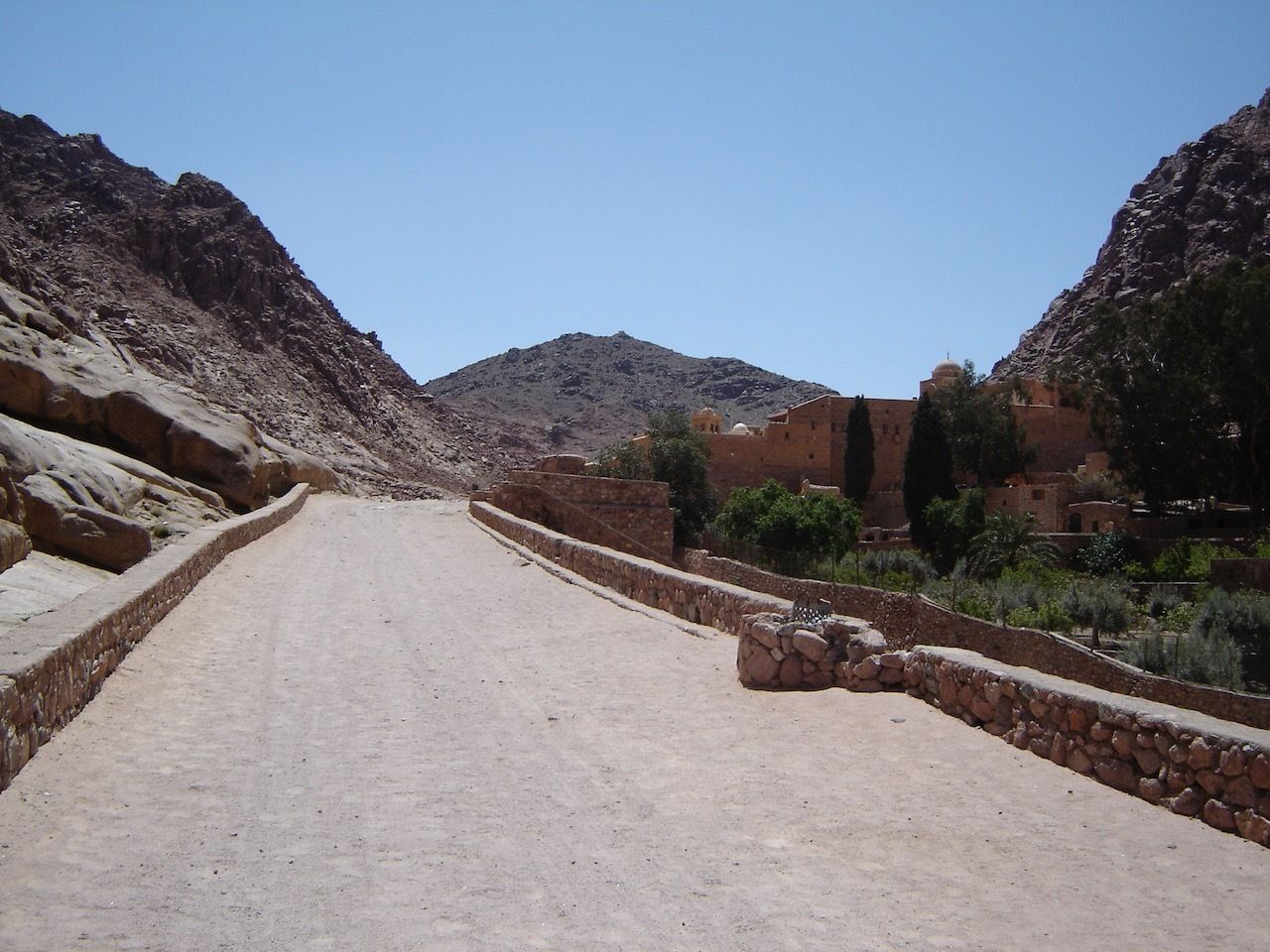- This is the Day
- Posts
- April 1
April 1
F.D. Maurice and Mary of Egypt

St. Catherine’s Monastery, Sinai, Egypt, 2006. Own photo.
Today is a feast day, in the Episcopal Church, of F.D. Maurice, a priest and theologian in the Church of England who promoted Christian socialism. He died on April 1, 1872. In addition to being a professor of ethics, he started several worker-own co-ops in England which were designed to live out his ideas of Christian socialism.
Today is also a feast day for Mary of Egypt, one of the early Desert Mothers who is known to us only through oral tradition and hagiography. She allegedly told her life story to the monk Zosimus of Palestine in the 7th century.
Today is also “Fossil Fools Day,” when many protesters try to remind the human world of the foolishness and self-destructive logic of fossil fuel dependence.
Reflection:
The Lord's Prayer may be committed to memory quickly, but it is slowly learnt by heart.
I went into the Army believing that if you want peace you must prepare for war. I now believe that if you prepare thoroughly for war you will get it.
I’ve only just learned of F.D. Maruice, but he sounds like a fascinating character. His writings are in the public domain and you can find many of them here.
Mary of Egypt is an interesting figure. In the story, she describes her life prior to her conversion as one of prostitution. But someone who runs away from home at the age of twelve sounds more like a person with living with PTSD, a feature of which may be sexual compulsions. She repented (which literally means “turned around” or “expanded the mind”) after a pilgrimage to Jerusalem and a vision of the Virgin Mary, and became a wandering hermit in the desert, living naked in the wilderness off of foraged food until she was very old. I believe her story is not simply about a “prostitute with a heart of gold” or merely a “fallen woman redeemed from her sin,” but rather about someone who was taught by Jesus’s mother that she could live without seeking value from the interest of men in human society. Her nakedness and life in the wilderness sound more like someone choosing a life free from the shame of human society. She entered, not a convent, but the wilderness, more like a John the Baptist or a prophet Isaiah. She was able to quote scripture without ever having read it, because she kept such close communion with God.
Stories of such officially-approved saints often reinforce Roman Catholic guilt and sex-shaming. (We often hear of many varieties of religious and sexual guilt including “Jewish guilt,” “Baptist guilt,” “Mormon guilt,” etc.). But texts and stories are multivalent, meaning they can have more than one interpretation. Even the original author does not have control over the meaning stories have for future readers. As a pastor, therapist, and theologian, I think her story makes much more sense to read through the lens of trauma, gender, and race, and tenacity some survivors have to cling to God even when society—and church—is unbearable. Mary found meaning in the sacraments and scriptures even as she stayed far from the institution.
Prayer: Holy Spirit, Holy Comforter, shape our communities in such a way that they are places of healing, rather than perpetuators of suffering. Amen.